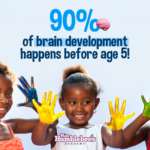Last month (January 2015) was our first month with our new blog and our first issue of free lessons centered around the theme Five Senses. For the month of February, we will be moving on to a new theme…PETS! What better way to start this month’s theme than with a quote:
Whether you’re a cat, dog, snake or fish fan, having a pet is something most people have thought about at some point in their lives. But did you know having a pet is more than just a cuddle buddy (I realize you can’t really cuddle with a fish, but you get my point)?
According to the American Academy of Child & Adolescent Psychiatry (AACAP), a child who learns to care for an animal and treat it kindly and patiently may get invaluable training in learning to treat people the same way.
There are also many benefits to caring for and owning a pet. Caring for a pet can help children develop social skills. Developing positive feelings about pets can contribute to a child’s self-esteem and self-confidence. Positive relationships with pets can aid in the development of trusting relationships with others. A good relationship with a pet can also help in developing non-verbal communication, compassion and empathy. Pets can serve different purposes for children:
- They can be safe recipients of secrets and private thoughts–children often talk to their pets, like they do their stuffed animals.
- They provide lessons about life: reproduction, birth, illnesses, accidents, death, and bereavement.
- They can help develop responsible behavior in the children who care for them.
- They provide a connection to nature.
- They can teach respect for other living things.
Other physical and emotional needs fulfilled by pet ownership include:
- Physical activity
- Comfort contact
- Love, loyalty, and affection
- Experience with loss if a pet is lost or dies.
Although most children are gentle and appropriate with pets, some may be overly rough or even abusive. If such behavior persists, it may be a sign of significant emotional problems. Any child who abuses, tortures or kills animals should be referred to a child and adolescent psychiatrist for a comprehensive evaluation.
Be sure to signup or visit our blog every week for your free lesson ideas in the following areas:
• Art with Kids
• Reading with Kids
• Science with Kids
• Cooking with Kids











